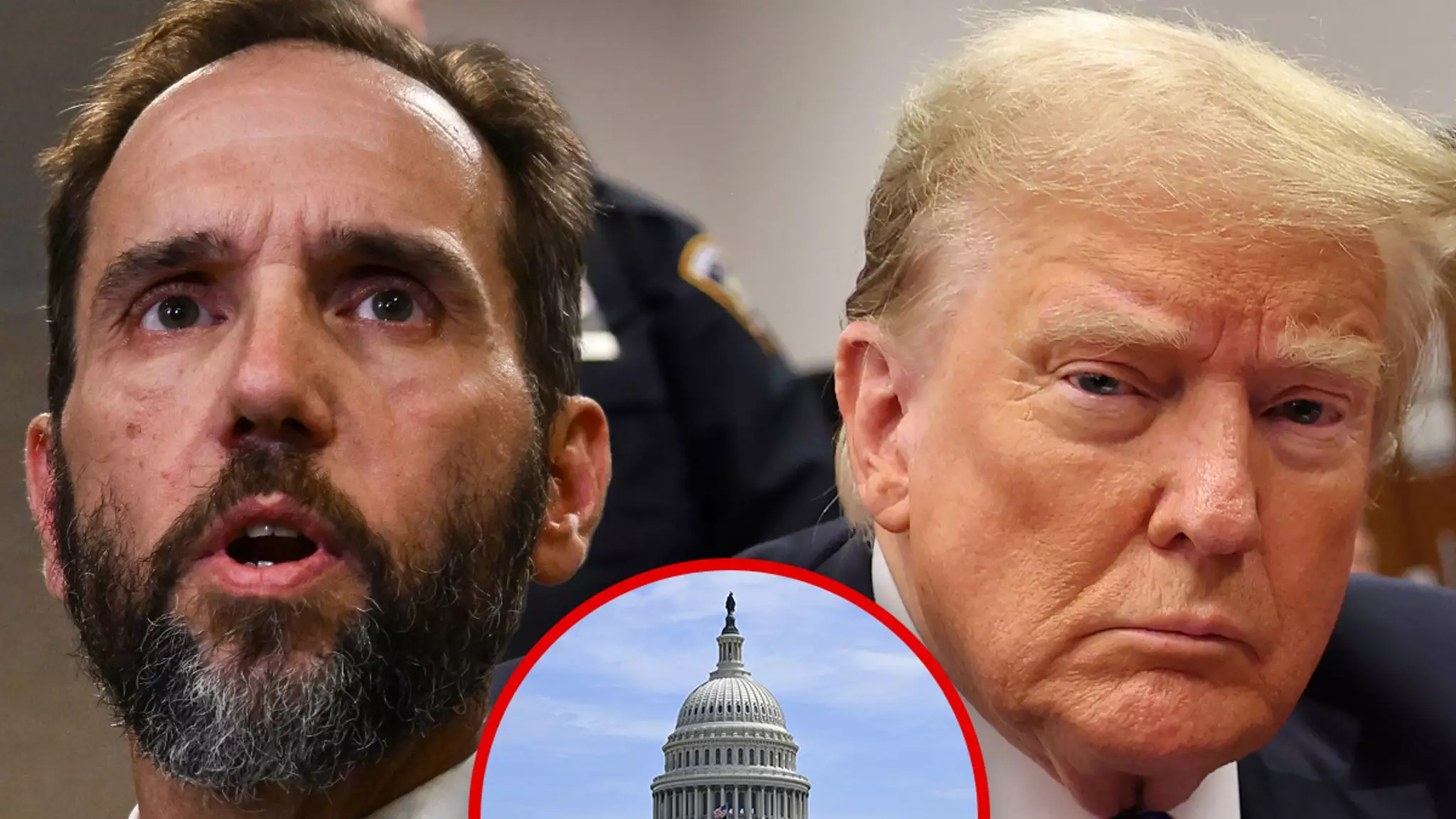The recent developments surrounding Special Counsel Jack Smith’s motion to dismiss the federal election interference case against former President Donald Trump signify a critical juncture in American political and legal discourse. As Trump prepares for his forthcoming inauguration, the implications of this legal maneuver extend far beyond the courtroom, touching the fabric of American democracy and the boundaries of presidential accountability.
In a formal request submitted to U.S. District Judge Tanya Chutkan, Smith articulated the basis for dismissing the charges under the Department of Justice’s long-standing policy that prohibits prosecuting a sitting president. This argument aligns with historical precedents that underscore the unique status of the presidency within the U.S. legal framework. Smith’s dismissal motion highlights the evolving circumstances — namely, Trump’s election victory on November 5, 2024, and his imminent inauguration — as justifications for the case’s withdrawal.
This assertion raises significant questions about the intersection of legality and political power. According to Smith, while the foundational elements of the case remain intact, the current political landscape compels a reevaluation of the charges against Trump. Critics may argue that this creates a double standard, wherein the actions of a sitting president, regardless of their nature, may escape judicial scrutiny due to their elevated status.
The Charges Against Trump: A Complex Legal Landscape
Initially, Trump faced several serious felony charges stemming from allegations that he attempted to undermine the results of the 2020 election following the January 6th Capitol insurrection. He was indicted on multiple counts, including conspiracy to defraud the United States and obstruction of an official proceeding. These charges signal a troubling chapter in U.S. history, where the integrity of elections is threatened by the very leadership elected to uphold democratic processes.
However, the case has been shrouded in legal delays, primarily as Trump’s defense team contended that his status as president shielded him from prosecution. Smith’s current motion to dismiss has introduced the idea of pursuing these charges when Trump no longer holds office. Such a dismissal “without prejudice” allows for the possibility of future legal action once Trump’s presidential term ends, thus preserving the allegations against him while navigating the constitutional constraints.
The decision to potentially refocus the legal challenge in the future has profound political ramifications. Many observers argue that permitting a former president to evade accountability sets a dangerous precedent that could normalize abuses of power. As Trump embarks on his new term, the legal specter of past transgressions may linger, affecting his administration’s credibility and the public’s trust in governmental institutions.
Public perception will likely continue to polarize surrounding these developments. Supporters may view this legal maneuver as a validation of Trump’s claims of victimhood in the political arena, while opponents could interpret it as a failure of the justice system to hold powerful individuals accountable.
As Trump steps back onto the national stage amid unresolved legal issues, the implications of Smith’s motion to dismiss are both complex and far-reaching. The eventual fate of the charges against Trump hangs in the balance, raising critical questions about the integrity of the judicial system, accountability, and the political landscape leading up to the next presidential election. The interplay between law and politics remains a focal point for discourse, as the nation navigates the challenges posed by its democratic ideals in a rapidly evolving environment.


Leave a Reply